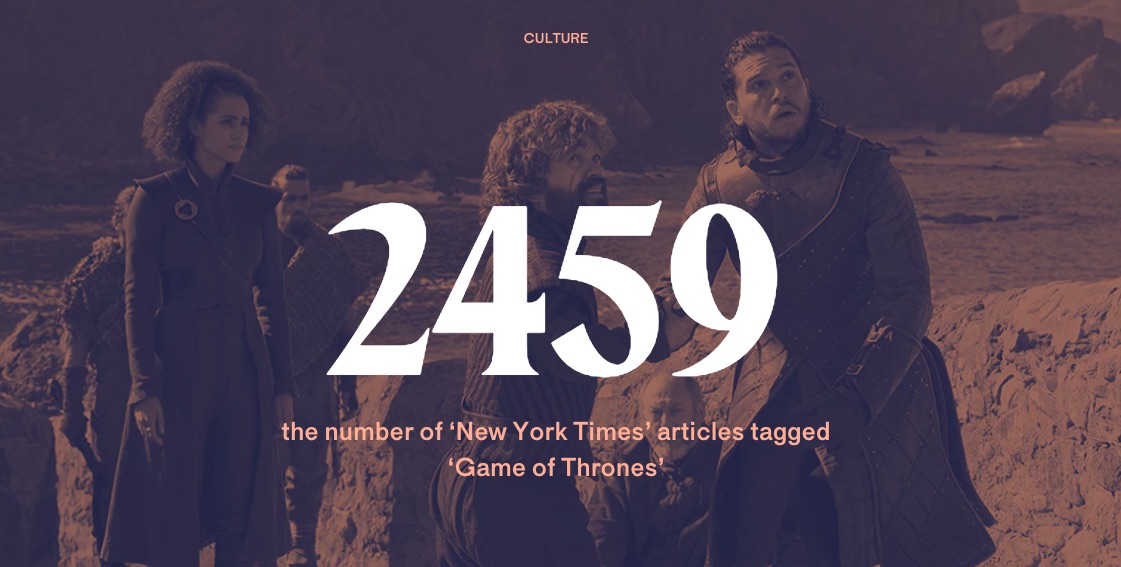“Content Is Coming”
By James Yeh, originally published in the Outline (2019)

I. A Song of Eyeballs and Engagement Time
Every Wednesday around 2 p.m., over 10 weeks spanning April to June 2016, HBO would release a batch of photos from the upcoming episode of Game of Thrones. My task, along with that of two colleagues, was to create content around these photos for our large media company employer’s website as quickly and efficiently as possible. This content would then be disseminated by a third colleague, the social media editor, who would hustle it out onto the company’s Twitter and Facebook accounts. The process from start to finish took around 20 minutes.
The photos we shared — uniformly dull shots of attractive people looking at one another — were not particularly newsworthy or exclusive. Nor was their release unusual: all sorts of show photos are doled out by all sorts of production companies. It’s just part of the game, if you will, to receive press releases in your inbox, and to politely ignore the majority of them. (Full disclosure: The media company also had a show on HBO at the time, but we were under no explicit obligation to cover.) Our innovation, if I may use the term generously, was to approach these posts as parody. Rather than dutifully unpack each tiny detail from the uneventful photos, as many sites did, our writer related what was happening in a vague, upbeat, ludicrously uninformed fashion. “There are people, funny clothes, and horses,” he wrote in one post. “Beyond that, I have no information for you, sorry. Hopefully you like these photos.”
I think these posts, trolly but essentially harmless, were also a way to convey a funny — or very sad — truth: how useless these photos were and how absurd, even somewhat grotesque it was that we, content producers, were nonetheless compelled by market forces to produce such a post that they, content consumers, would nonetheless be compelled to click through. Such a post, we hoped, would at least be entertaining (or brief) enough that people might forgive the bait and switch. Either way, the engagement time would be ours.
The posts did well — they were our most trafficked posts for hours. Which was a thrill, and a relief — page views here meant resources elsewhere — but not a surprise. If there’s anything I’ve learned from covering culture on the internet in the 2010s, it’s that 1) Thrones-related content does very well and 2) you, too, may be asked to create it, because it does very well. As the series prepares to wrap after eight seasons, it will leave a hole in the content economy that could only be filled by another Game of Thrones.
Continue reading at The Outline.